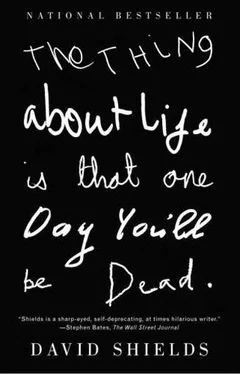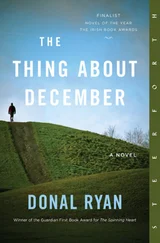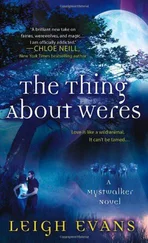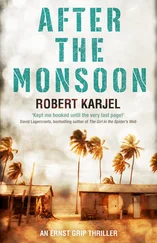Which is all our obsession with human beauty is, anyway: an evolutionary adaptation for evaluating others as potential producers of our child. Male college students, shown photos of more and less attractive women, are far more likely to volunteer for altruistic and risky acts for a beautiful woman. Attractive women are 10 times more likely than plain women to “marry up.” Not news. But mothers with attractive babies spend more time holding their baby close, staring into their baby’s eyes, than mothers with babies judged less attractive; the latter spend more time tending to their baby’s needs and are distracted much more easily. Babies born prematurely—who often have falsely mature faces—are imagined to be difficult and irritable, and people are less willing to volunteer to take care of them. So, too, a study of abused children under court protection in California and Massachusetts found that a disproportionate number of them were “unattractive.” When people are asked to approach a stranger and stop when they no longer feel comfortable, they stop nearly two feet away from attractive people, as opposed to less than a foot from less attractive people: beauty is privileged territory. In youth, my father was extremely handsome, a Jewish prince, and he’s never gotten over that fact. When my first novel was published and I had a little book party to celebrate, he didn’t attend because he wasn’t looking his best. This was in 1984; he was 74.
People will say about an especially pretty little girl, “She’s going to be a heartbreaker”—which is, to me, an odd and revealing phrase. What does it mean, exactly? It means that when she grows up, she will use her beauty as a weapon, and she is expected to do so.
In Survival of the Prettiest, Nancy Etcoff describes American coots: gray birds whose chicks have orange plumes and bald heads that turn bright red during feeding. The chicks beg for food by flashing their red and orange signs for their mother. When researchers trimmed the orange plumes, the drabber chicks got less attention and food from the mother, who fed the more colorful chicks first. When human mothers give birth to high-risk, low-weight twins, they invariably favor the healthier twin, soothing, holding, playing, and vocalizing more with the twin more likely to survive. A mother has limited resources; she needs to know how much to invest in her new baby without endangering herself and the lives of her other children.
A mortal animal is a germ cell’s way of making more germ cells, thereby optimizing the likelihood that they’ll fuse with germ cells of the opposite sex. The continuation of the germ line is the driving force of natural selection; longevity of individual animals is of secondary importance. Animals are selected through evolution for having physiological reserves greater than the minimum necessary to reach sexual maturation and rear progeny to independence, but once this goal has been accomplished, they have sufficient excess reserve capacity to coast for a period of time, the remainder of which is called your life span. You’re a salmon without portfolio.
In 1930, one in five cancer patients survived; in 1940, one in four; in 1960, one in three; in 1990, 40 percent survived. Now, 50 percent survive. One out of every eight American women will develop breast cancer in her lifetime, and the risk increases with age. Three of the risk factors are early menstruation, childbirth after 30 or no childbirth, and menopause after 50; you’re urged, in other words, to get on stage when expected, hit your lines at the right time, and then exit on cue. Any deviation, and evolution punishes you. There’s really only one immutable biological law, it has only two imperatives, and it gets stated in dozens of ways: spawn and die.
I was patiently waiting my turn at the pharmacy when a 20-something, accompanied by his pretty, punky girlfriend, tried to cut in line. I told him to go to the back. He said, “What is this, junior high?” I said, “No, this is the line for the pharmacy, but the way you’re acting—” He asked why I couldn’t grow hair on my head. I wondered why he hadn’t grown any taller. It was a very high-level exchange. He pushed me; I pushed him. He raised his fists and said, “Let’s go.” Forty years receded, and it was as if I’d returned to 6th grade, the last time I was in a fight: I got a huge adrenaline surge, I could hear my heart thumping, and I couldn’t quite catch my breath. I declined the drugstore fisticuffs, but I replied—with the emphatic approval of my middle-aged comrades in line—“Life has rules.” It does? I was appalled; it never occurred to me that I would ever say anything remotely resembling this. If life has rules, what are they? At a party recently, I overheard a woman, attempting to seduce a young man half her age, say, “I’m forty-five, but I’m tight.” That’s pretty much it: sex and death. Reproduction and oblivion.
In Rabbit, Run, published when John Updike was 28, he wrote, “The fullness ends when we give Nature her ransom, when we make children for her. Then she is through with us and we become, first inside, then outside, junk. Flower stalks.”
Steve Nash, 34, who has been the Most Valuable Player of the National Basketball Association two of the last three years and who is the father of 3-year-old twin girls, says, “I guess I’m learning more how insignificant my life is. I still enjoy my work. I still enjoy my friends and family and relationships, but you realize the girls are so innocent and dependent. You realize your life, in some ways, is over.”
Thackeray said, “When one is twenty, yes, but at forty-seven Venus may rise from the sea, and I for one should hardly put on my spectacles to have a look.”
A few years ago, I told Laurie that it seemed to me as if so many people our age—48 or a bit older—had started taking “nice pills” everyone seemed so much more mellow. She said, “It’s not them. It’s you: you’re nicer. And so people seem to you—”
“No,” I protested. “No I’m not. I’m a walking blade.”
In a short story, Barry Hannah writes about his protagonist, who’s in his late 40s, “He still did not know precisely what accounted for it, but some big quiet thing had fallen down and locked into place, like a whisper of some weight. Ned Maxy had been granted contact with paradise, and he could hardly believe the lack of noise.”
Joke courtesy of Dr. Herring: There are three kinds of married sex. When you’re first married, you’re so lusty you have sex in every room in the house. After several years, the passion dies down a little, and you confine sex to the bedroom. After many years, you pass each other in the hallway and say, “Fuck you.” One in five married couples has sex less than once a month; I recently heard a woman on the radio suggest that couples should have sex no more often than they do their taxes (quarterly? annually?).
The weak links of the human body are exposed when people survive beyond the reproductive period. For instance, the thymus gland degenerates after your sexual maturation. At age 50, you retain only 5 to 10 percent of the original mass of the thymus, which produces hormones whose levels decline at age 25 and are undetectable after 60.
The weight and size of the uterus decrease after menopause until age 65, when it’s half the weight it was at 30. After age 60, men have fewer and fewer erections during sleep. Sexual daydreams decline in frequency and intensity until age 65, when they largely disappear.
Sophocles, in old age, said finally being free of sexual desire was “like escaping from bondage to a raving maniac.”
In opposition, again, to all this decline and fall, this piece my father wrote, in his late 80s, for his class:
It’s funny how easily you can misjudge people or, more specifically, women. How easy it is to be deceived about what happens or what’s said at a first meeting. After our first date, I felt that we would become lovers in a month. In a worst-case scenario, six weeks or two months. I met Virginia for the first time at a Palo Alto senior center where I’d gone to a lecture on the future of the novel. I got there late and the only seat was in the back row, which turned out to be next to her. When the lecture and question-and-answer and coffee-and-cookies periods were over, I said I’d escort her to her car in the parking lot, since it was late. When we got to her car, I mumbled the ritualistic “Glad to have met you” and was prepared to leave, when she reached into her purse and pulled out a card with her name and phone number on it. She asked me to call her.
Читать дальше












